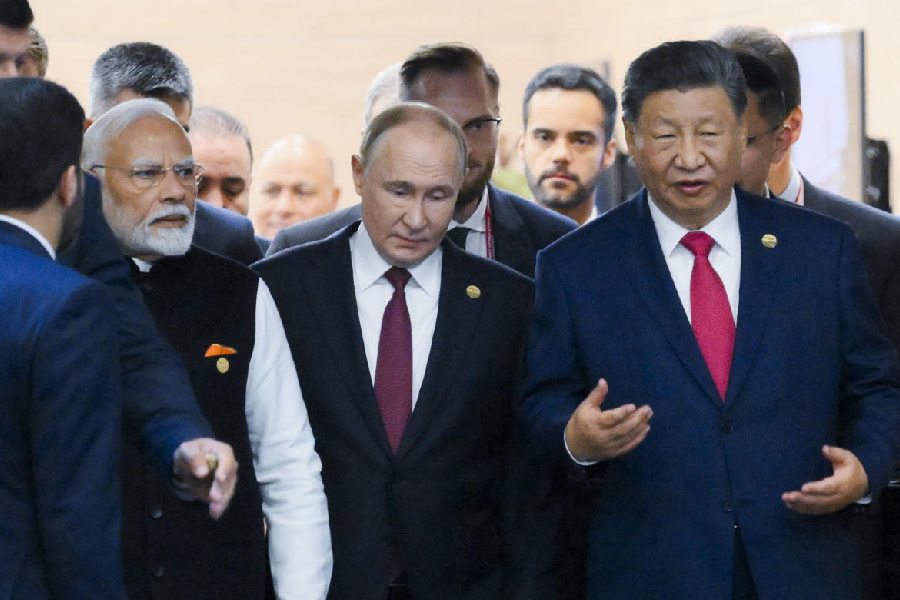Prime Minister Narendra Modi met Chinese President Xi Jinping on the sidelines of the Brics summit in Kazan, Russia, on Wednesday, signalling the start of the “journey to normalcy”.
The two leaders instructed the special representatives (SRs) on the India-China boundary question to meet at an early date and work towards the maintenance of peace and tranquillity in border areas.
This was Modi and Xi’s first proper bilateral meeting at the delegation level in nearly five years since they met on the sidelines of another Brics summit in Brasilia in 2019 before the relationship was disrupted by China moving troops to the Line of Actual Control (LAC) in violation of explicit agreements. Wednesday’s meeting is being billed as an endorsement of Monday’s agreement on patrolling and disengagement at the highest leadership level possible between the two countries.
“Both leaders welcomed the efforts that were made by Indian and Chinese negotiators and the results achieved by that.… This should certainly lead to an easing of the situation along the LAC,” foreign secretary Vikram Misri told reporters at a media briefing on the meeting in Kazan.
“Following today’s meeting we have to schedule the next round of SR talks at an appropriate date,” Misri said.
The SRs — Ajit Doval and Wang Yi — have met on the sidelines of international events since bilateral relations tanked in the summer of 2020. However, the last time they met in the capacity of SRs was in December 2019.
Ahead of the meeting that pointed towards the smoothening of relations after years of tension, finance minister Nirmala Sitharaman said at Wharton School in the US that India would retain restrictions on investment from nations with which it shared land borders.
“I cannot blindly receive foreign direct investment (FDI) because I want money for investment, forgetful or unmindful of where it is coming from,” she said.
In Kazan, Misri, replying to a question on new confidence-building measures (CBMs), said: “We have a number of CBMs and these evolve continuously. As the two sides engage once again in multiple formats, this is certainly a subject that will beunder discussion.”
Misri sidestepped a question on whether soldiers would have to remain in the forward positions along the LAC for another winter, maintaining that these were operational matters to be decided by the military leadership. On whether China could be trusted, Misri said he was hopeful that the process ahead would increase the level of trust.
According to Misri, Modi underscored the importance of not allowing differences on boundary-related matters to disturb peace and tranquillity on the borders. “In this context, the two leaders noted the SRs have a critical role to play in the resolution of the boundary question and for the maintenance of peace and tranquillity in the border areas.”
The two leaders also reviewed the state of bilateral relations from a strategic and long-term perspective. “They were of the view that stable relations between India and China — the two largest nations on earth — will have a positive impact on regional and global peace and prosperity. Both of them stressed that with maturity and wisdom, and by showing mutual respect for each other’s sensitivities, interests, concerns and aspirations, the two countries can have a peaceful, stable and beneficial bilateral relationship,” the foreign secretary added.
India iterated its stance that the restoration of peace and tranquillity in the border areas would create space for the two countries to return to the path of normalisation of relations. Officials have been tasked with taking steps to discuss ways to enhance strategic communication and stabilise bilateral relations by utilising the official dialogue mechanisms, including at the level of foreign ministers.










